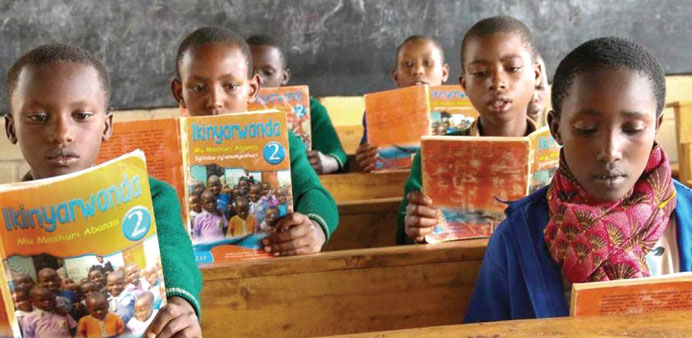By David Milliband and Marcio Barbosa/London
Education is the foundation of lifelong prosperity, good health, nutrition, security, peace and tolerance between nations. Last week, education leaders from around the world met in South Korea to discuss a broad education agenda and propose goals and targets for the next 15 years.
This year’s meeting was especially important because this is the year when the UN will adopt ambitious Sustainable Development Goals, a set of principles that guide the global development agenda for the next 15 years, including on education.
The proposed targets address all the critical areas of education and provide scope for the full range of actors around the world to contribute to education and the opportunity for lifelong learning for all. This is an enormous ask that gives us reason to pause and reflect on how we might contribute to this essential goal. There are big opportunities, but also big risks.
Since the Millennium Development Goals were adopted in 2000, there has been vital progress in the expansion of universal primary schooling. In fact, by 2012 the number of primary school-age out-of-school children had dropped by 42%, and for girls by 47%. From 1999 to the present, the number of primary school-aged children enrolled in school globally has increased by 48mn.
But there is another side to the story. Around 58mn children around the world remain out of school. And 100mn of those actually enrolled will not finish the year’s schooling. There are many barriers that prevent children from enrolling or completing a primary education. Two of the most common ones are poverty and conflict, with approximately 28.5mn children in conflict and crisis settings who are out of school.
The targets in the proposed new education goal - “inclusive and equitable quality education and lifelong learning opportunities” - provide ample scope and opportunity to fulfill the promise that we made in 2000 to the world’s children.
However, without special attention to those who are still out of school, the most marginalised will remain excluded. But we need new thinking as well to achieve the ambitious targets of this goal. Innovative models require all stakeholders, including governments, NGOs, donors, teachers, and importantly, communities to come together to find solutions tailored to the specific barriers faced by out-of-school children.
Policies that prevent teachers from being paid, constrain curriculum, dictate language of instruction and impose barriers on who provides education are unacceptable excuses for preventing a child from realising his or her right to education.
Creative collaboration is required to reach the needs of the most marginalised, as seen through the work of Education Above All’s programme Educate A Child and the International Rescue Committee in Côte d’Ivoire, where community savings and loans programmes are in place to defray the real and opportunity costs of primary education.
In addition to innovative programmatic solutions, funding is an essential part of completing the unfinished agenda. While many donors and national governments have been generously providing funding for education, overall aid to the sector has dropped by 10 % since 2010.
Education receives less than 2% of humanitarian funding and less than 40% of what is requested for the sector. Funds are needed for a wide range of activities including programming, evidence-building and psychosocial support for disadvantaged children.
Full recognition of the challenge of the unfinished agenda of universal primary education is essential. Focused, targeted attention to those most affected by poverty and conflict within the education targets and their implementation can result in a more robust response to achieving the new goal.
As key stakeholders gather at the World Education Forum this week in Incheon, the time is now to remember our promise to the world’s children. Despite recent years’ achievements, inequity in education persists, especially for the most marginalised of children.
And every broken promise undermines and goes against the spirit of the Development Goal process. Let’s ensure that the priority of an inclusive and equitable quality basic education for all does not become a diluted promise.
♦ David Milliband is a UK politician and CEO of the International Rescue Committee and Marcio Barbosa is Education Above All’s CEO.

